65+ Sample Broker Agreements
-
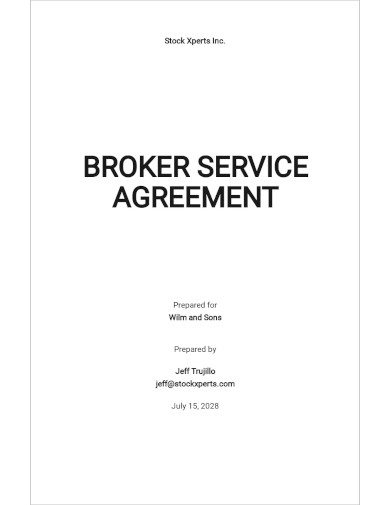
Broker Service Agreement Template
download now -
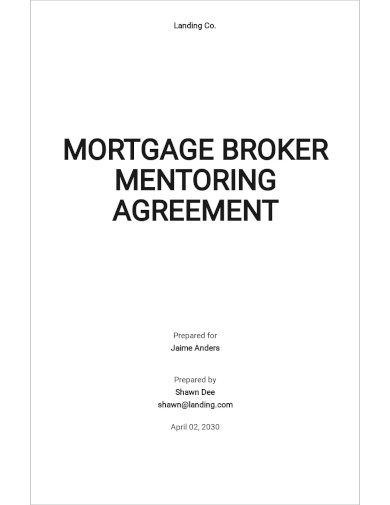
Mortgage Broker Mentoring Agreement Template
download now -
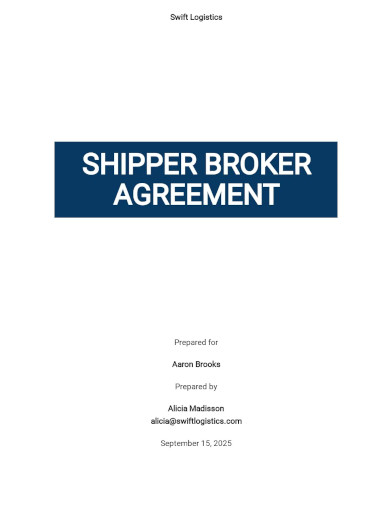
Shipper Broker Agreement Template
download now -
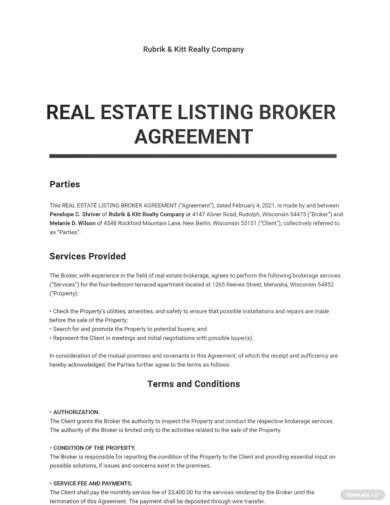
Real Estate Listing Broker Agreement Template
download now -
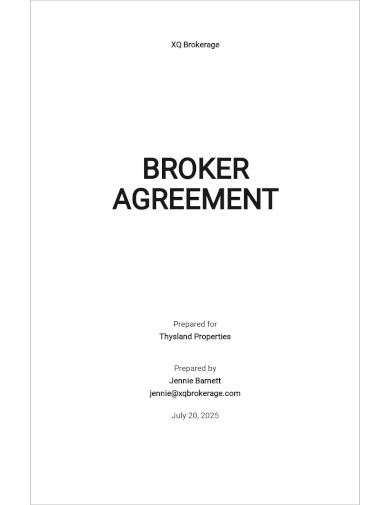
Broker Agreement Template
download now -
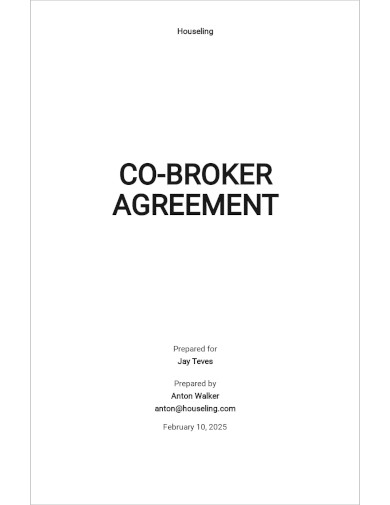
Co-Broker Agreement Template
download now -
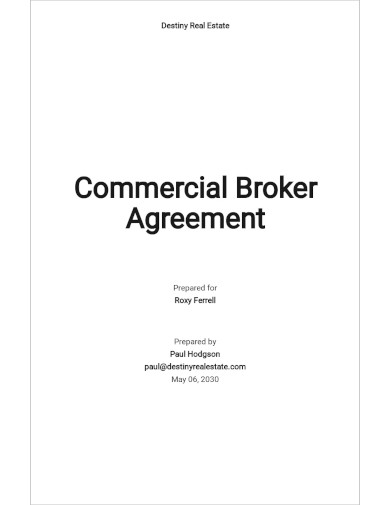
Commercial Broker Agreement Template
download now -
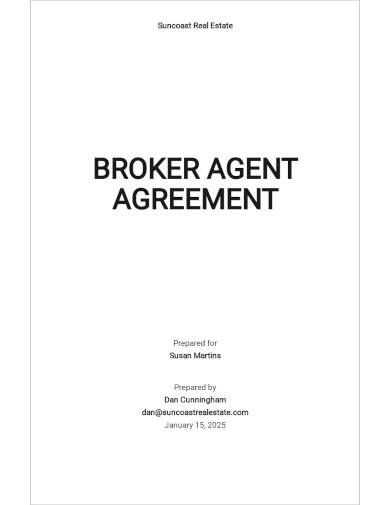
Broker Agent Agreement Template
download now -
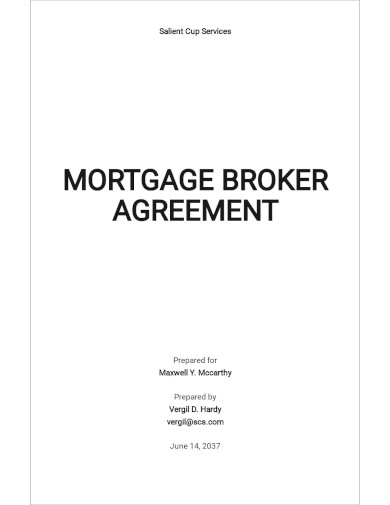
Mortgage Broker Agreement Template
download now -
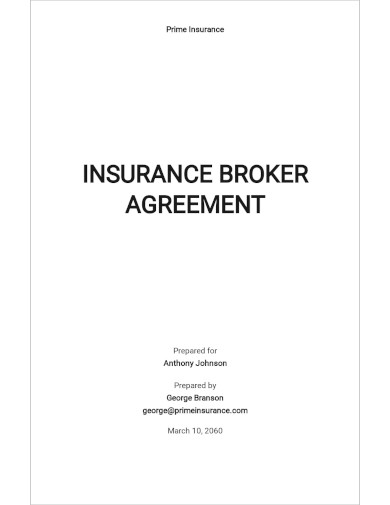
Insurance Broker Agreement Template
download now -
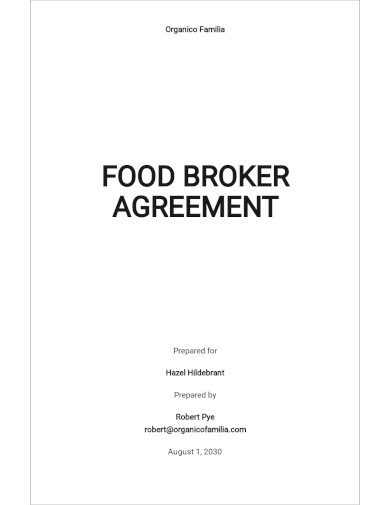
Food Broker Agreement Template
download now -
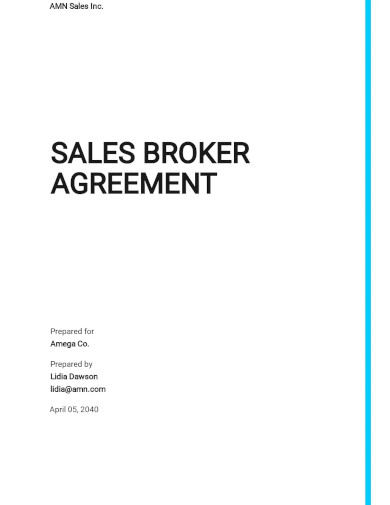
Sales Broker Agreement Template
download now -
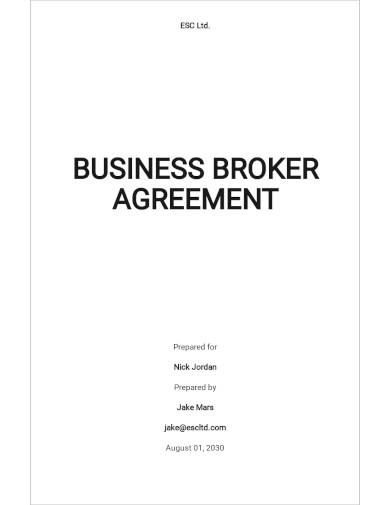
Business Broker Agreement Template
download now -
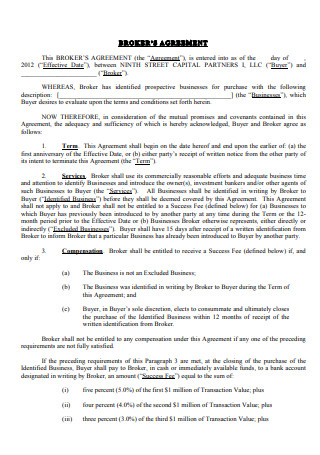
Broker Agreement Form
download now -
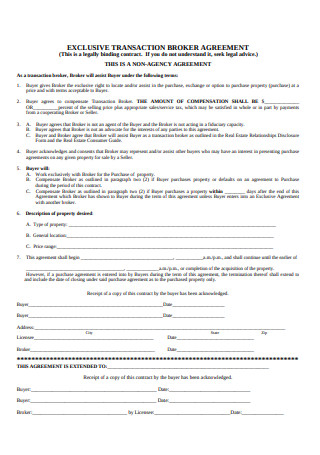
Exclusive Business Broker Agreement
download now -
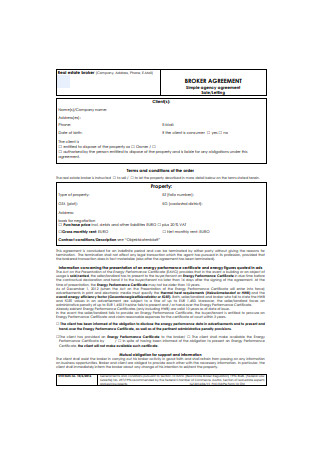
Real Estate Owner Broker Agreement
download now -
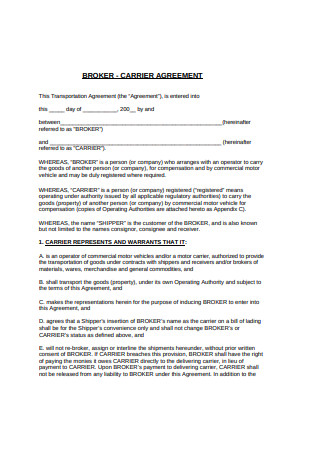
Broker Loan Carrier Agreement
download now -
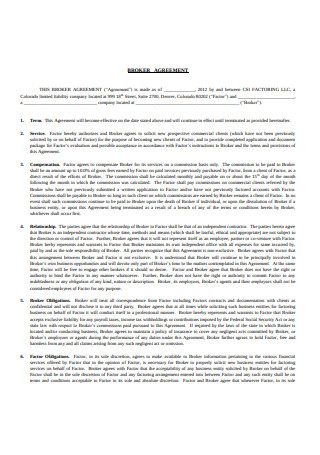
Broker Client Agreement
download now -
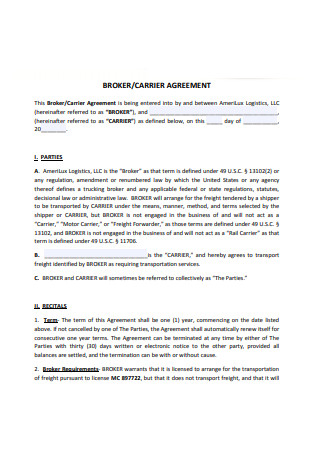
Broker Carrier Agreement Sample
download now -
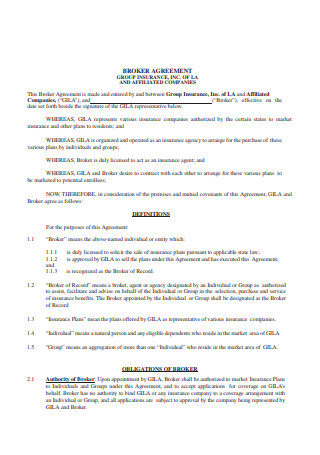
Car Buyer Broker Agreement
download now -
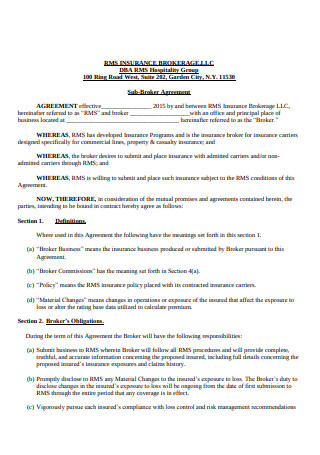
Vehicle Sub-Broker Agreement
download now -
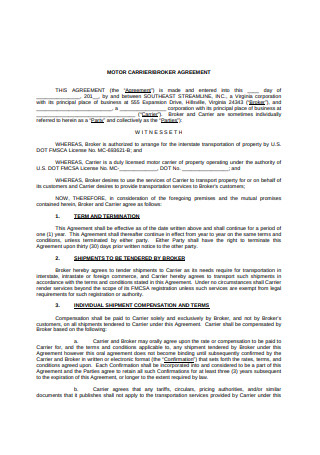
Motor Seller Broker Agreement
download now -
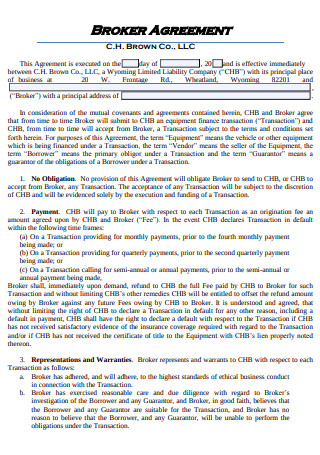
Sample Commercial Loan Broker Agreement
download now -
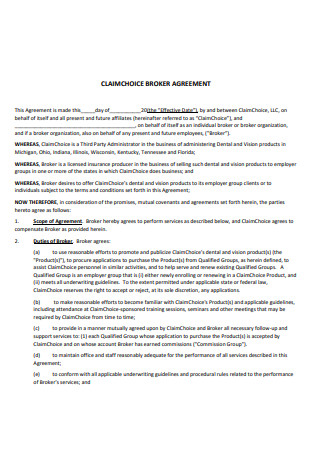
Rent Broker Agreement
download now -
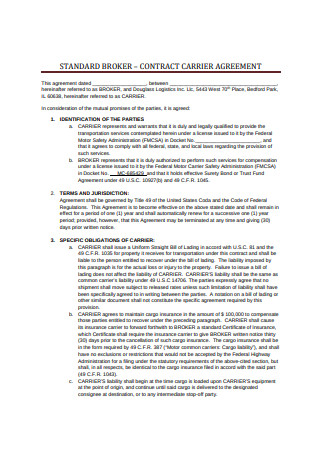
Standard Broker Share Agreement
download now -
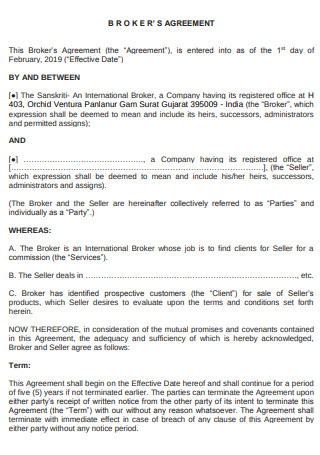
Sample Broker Employment Agreement Format
download now -
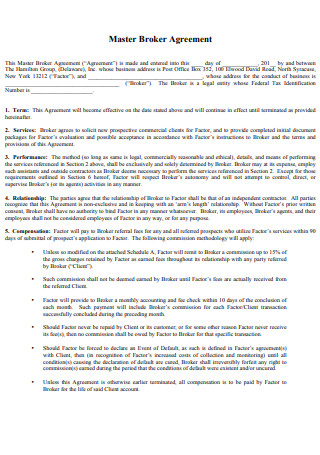
Master Broker Listing Agreement Agreement
download now -
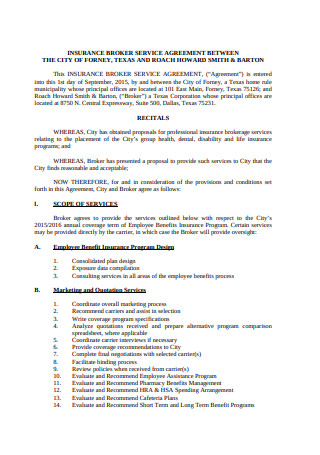
Broker Service Agreement
download now -
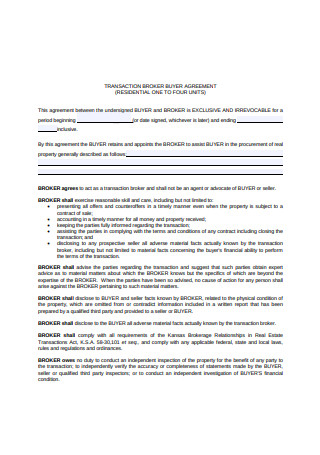
Broker Buyer Agreement
download now -
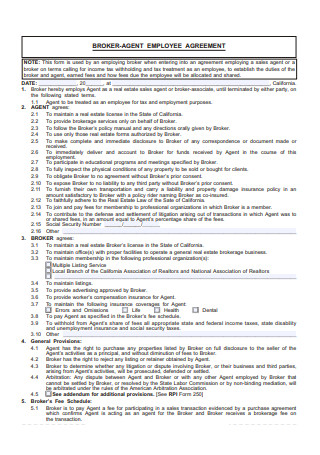
Broker-Agent Employee Agreement
download now -
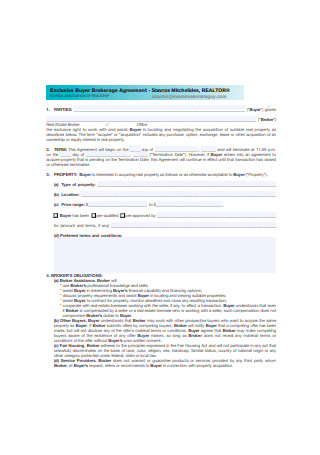
Exclusive Buyer Broker Agreement
download now -
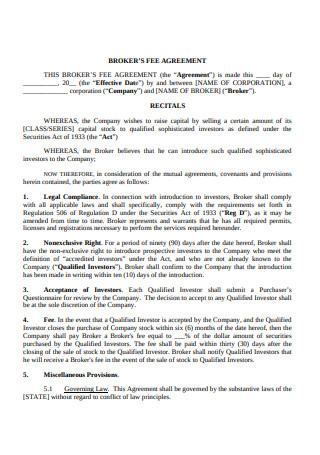
Broker Fee Agreement
download now -
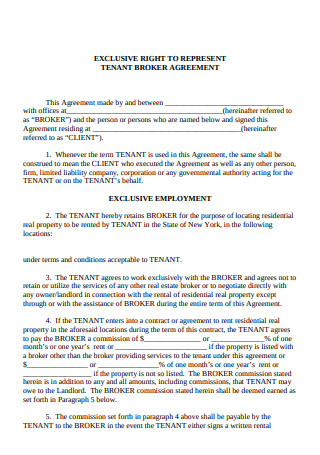
Tenant Broker Agreement
download now -
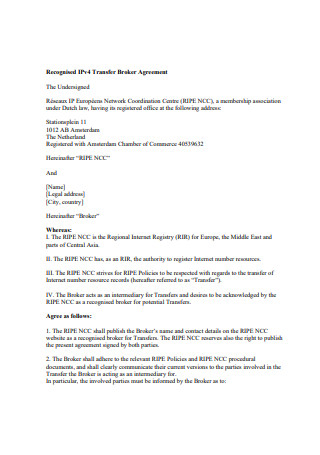
Transfer Broker Agreement
download now -
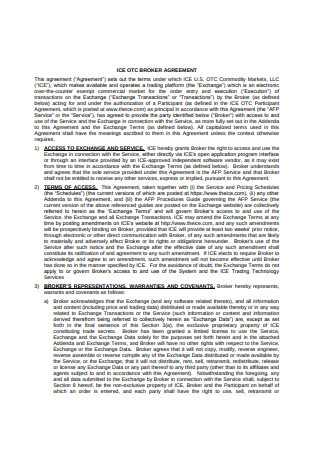
Basic Broker Agreement
download now -
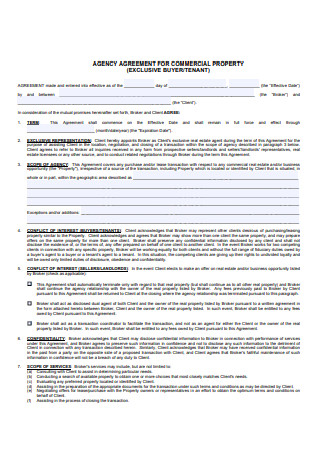
Property Broker Agreement
download now -
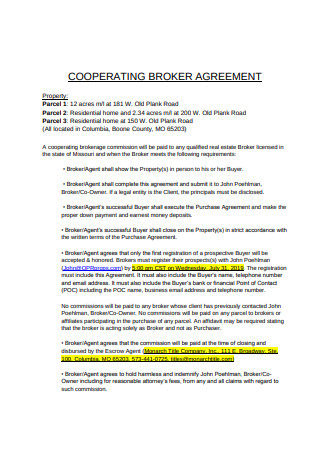
Cooperating Broker Agreement
download now -
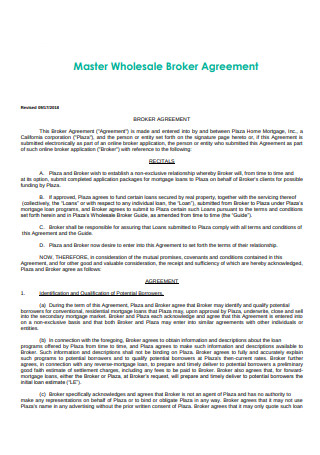
Master Wholesale Broker Agreement
download now -
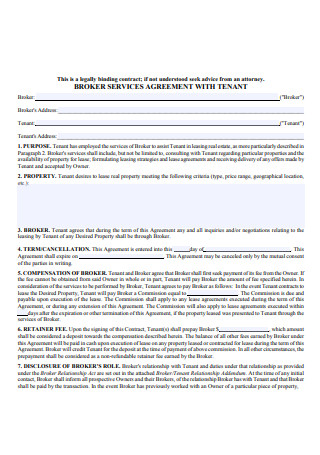
Tenant Broker Services Agreement
download now -
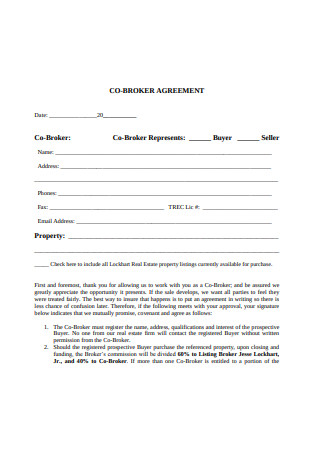
Co-Broker Agreement
download now -
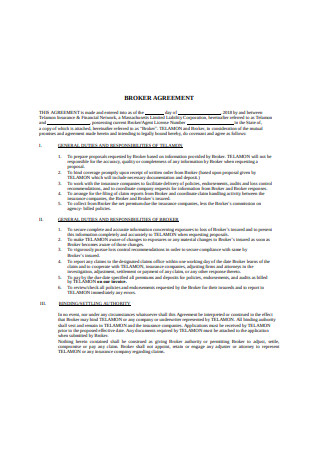
Formal Broker Agreement
download now -
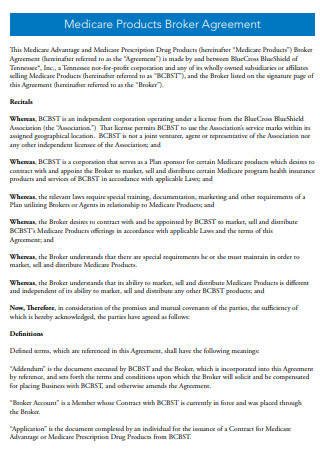
Medicare Products Broker Agreement
download now -
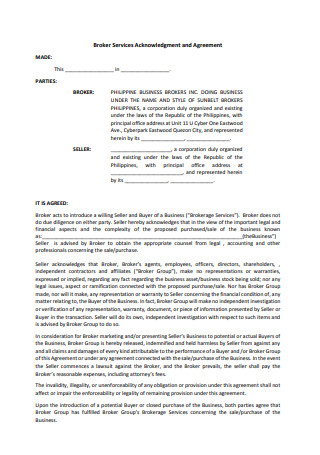
Broker Services Agreement Sample
download now -
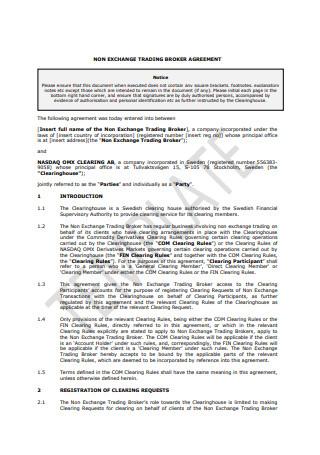
Non Exchange Trading Broker Agreement
download now -
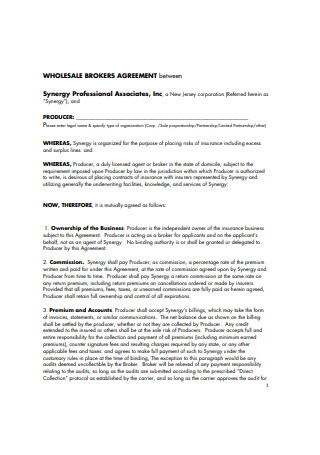
Wholesale Broker Agreement
download now -
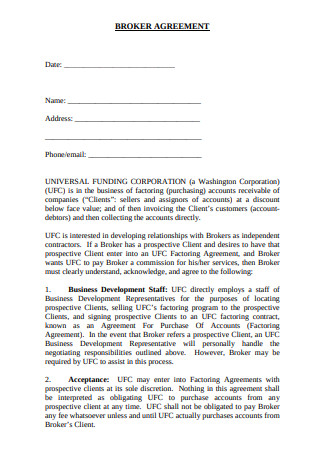
Basic Broker Agreement Format
download now -
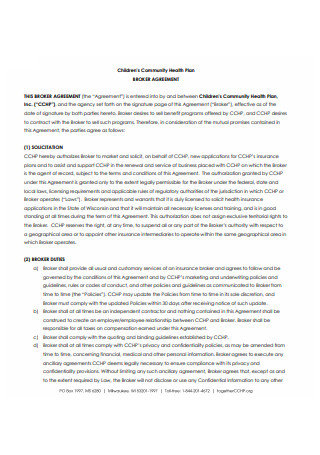
Simple Broker Agreement
download now -
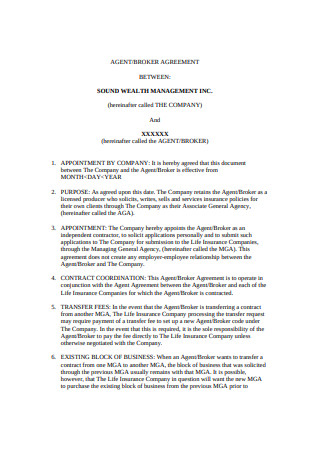
Broker Agreement Sample
download now -
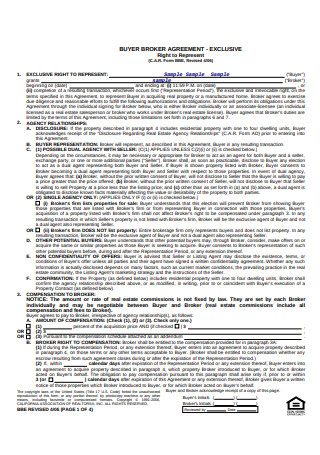
Buyer Broker Agreement Format
download now -
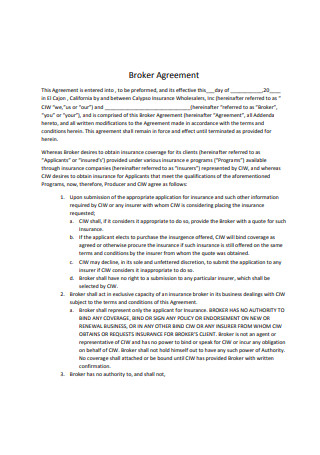
Printable Broker Agreement
download now -
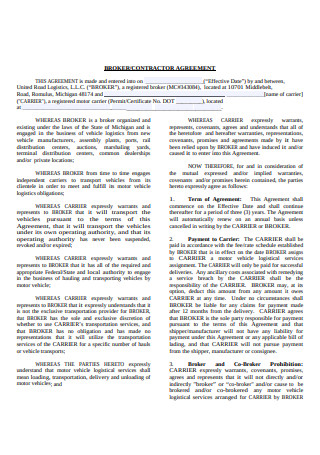
Broker Contractor Agreement
download now -
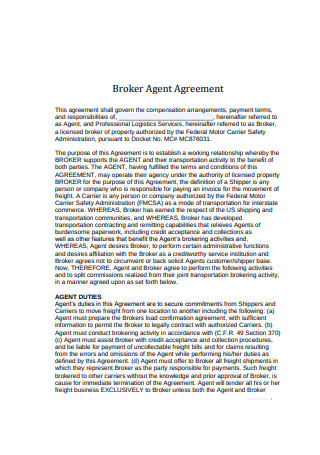
Broker Agent Agreement
download now -
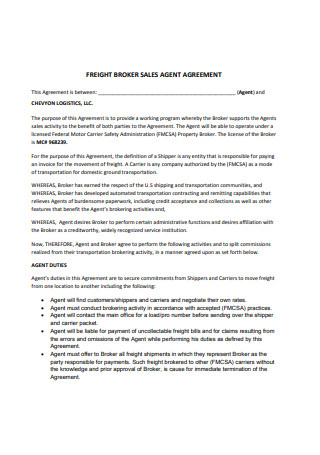
Freight Broker Sales Agent Agreement
download now -
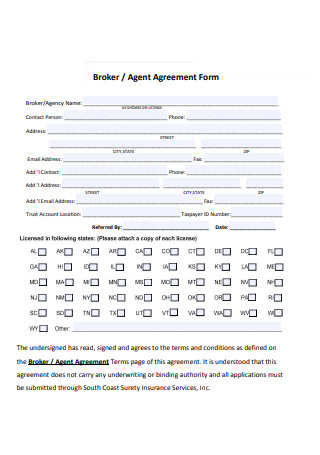
Broker Agent Agreement Form
download now -
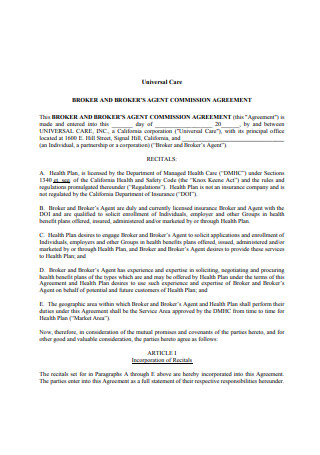
Broker Agent Commission Agreement
download now -
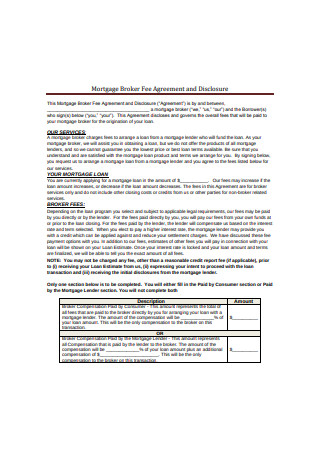
Mortgage Broker Fee Agreement
download now -
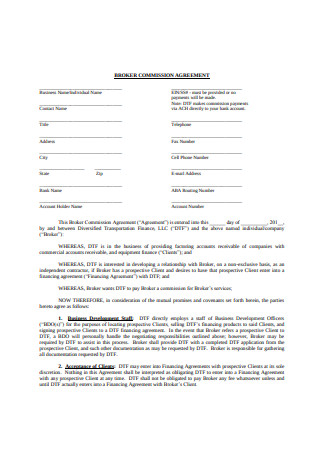
Broker Commission Agreement
download now -
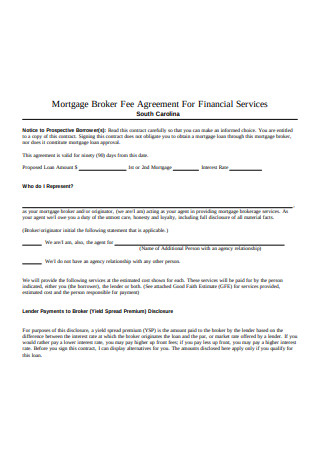
Mortgage Broker Fee Agreement For Financial Services
download now -
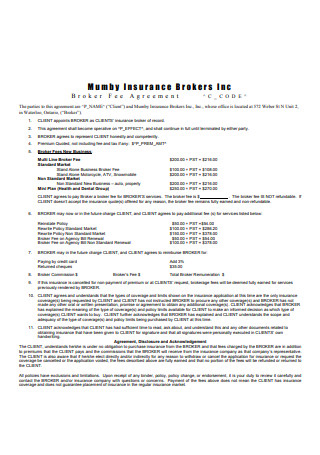
Sample Broker Fee Agreement
download now -
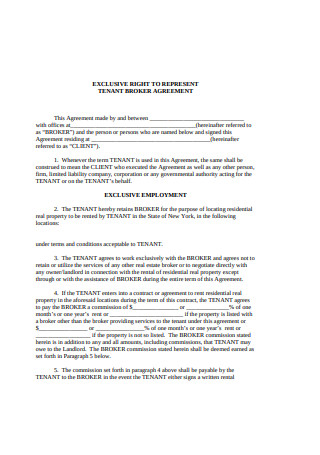
Tenant Broker Agreement Format
download now -
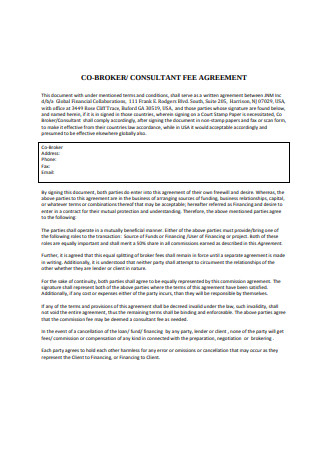
Co-Broker Fee Agreement
download now -
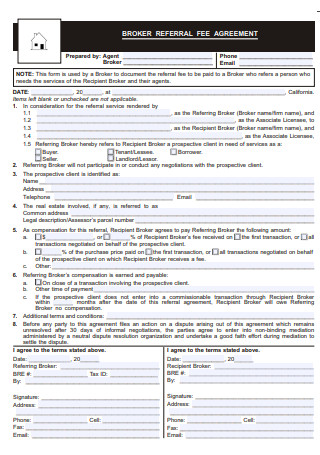
Broker Referal Fee Agreement
download now -
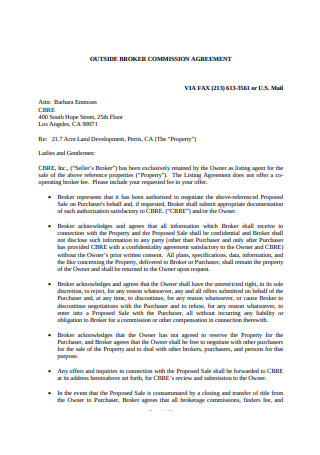
Broker Commission Agreement Format
download now -
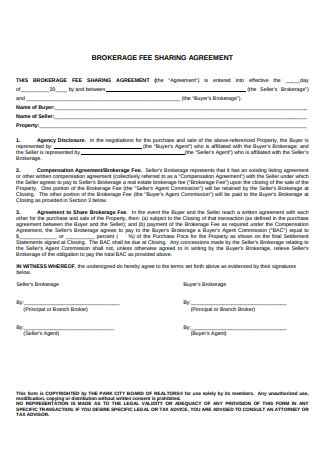
Brokerage Fee Sharing Agreement
download now -
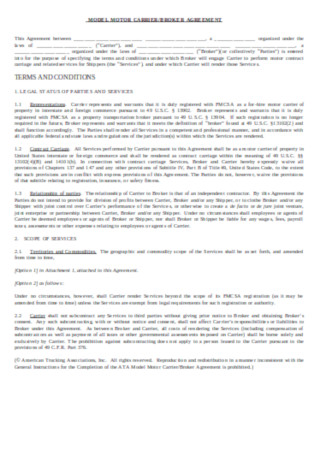
Model Motor Carrier and Broker Agreement
download now -
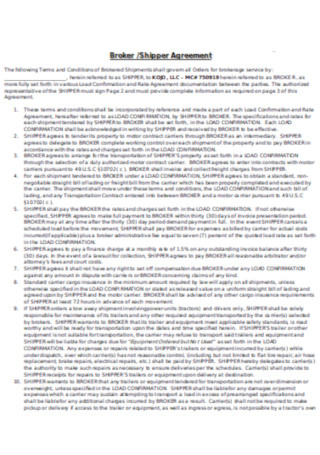
Sample Broker and Shipper Agreement
download now
What is a Broker Agreement?
An investor who wants to purchase stocks may need the service of a broker; an individual looking for the best insurance providing company may need an agent for assistance; and an individual who is looking for a property may find the broker’s help very convenient. A broker agreement consists of information concerning the relationship between an agent and a buyer or seller. Most importantly, it also includes the compensation the broker/sales agent will get for his/her service.
In the U.S., broker agreements are under laws of the state and federal government to keep the agreements legal. According to the Financial Industry Regulatory Authority, there are currently 624,996 brokers registered in December 2019 under their watch. FINRA functions to control the operations of brokers and brokerage companies in the U.S.
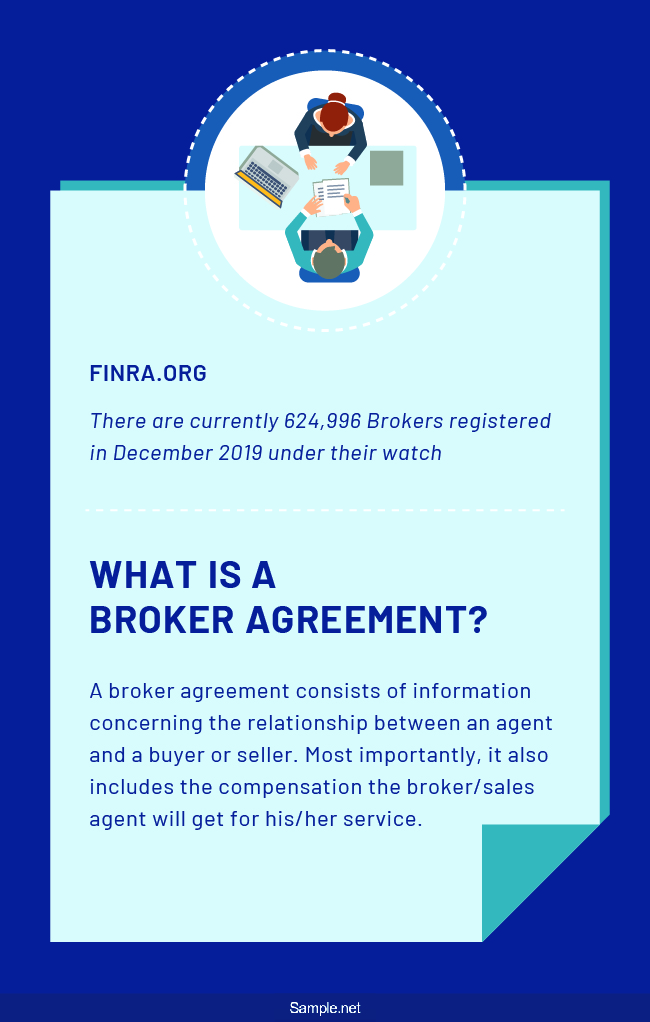
What are the 3 Common Types of Brokerage Agreements?
1. Stock Brokerage
A stock brokerage agreement is a binding contract between a stock broker and an investor. The broker acts as a representative who will purchase and deal stock for the client. Though the broker acts as a substitute, the client is still mainly obligated for the action and decisions acted out by the stock broker. In circumstances where there are disputes and confusions between the two regarding the risks involved and the strategies to use, the agreement can be used as a basis for resolution.
2. Insurance Brokerage
The relationship between a broker and an individual who is searching for an ideal insurance company is stated in an insurance brokerage sample contract. What does an insurance broker do? An insurance broker works to help a client find an insurance policy that best suits his/her need. Brokers are not representatives of insurance companies. In time, they will have to endorse their clients to an insurance sales agent for the business transaction to be finalized. You may ask, “what differs a broker from an agent?”
A broker stands as a representative for clients who are looking for good insurance policies, while an agent is a representative of one or more insurance companies. Brokers can canvass different prices from different companies, and later on, endorse the client to an insurance sales agent when he/she decides to purchase the policy. The agent, on the other hand, holds an appointment directly with a potential client while representing the company he/she is marketing.
3. Real Estate Brokerage
This type of agreement is a written contract between a real estate sales agent and a buyer or seller. A real estate contract, just like the other types of brokerage agreements, also highlights the obligations of both parties towards each other. Here are the common types of a real estate brokerage agreement:
Buyer Agency Agreement
A buyer agency contract is a contract between a real estate agent and a buyer searching for a home. The agent provides a list of properties the buyer could choose from and expects a commission from the buyer after a successful transaction. Both parties can enter into an exclusive or non- exclusive agreement. An exclusive agreement is an agreement in favor of the broker, and the broker is given a commission as long as the buyer purchases a property from his/her listing. On the other hand, a non- exclusive agreement is a deal where the broker will only be entitled to a commission once the buyer purchases a property the broker has shown him/her.
Listing Contract
The most common real estate brokerage contract is a listing agreement—a contract between the broker and the seller. An agreement is made when a seller asks for assistance from a real estate agent to sell his/her property and the commission is based on what is being agreed upon by both parties in the contract. In cases where two agents are involved in the negotiation, the commission will be divided. Sometimes, a listing agent may get more commission than the home buyer’s sales agent. Furthermore, listing agreements come in different types, here are some:
According to a study conducted by Jennifer Rudden, In 2018, 60% of respondents claimed that the help of real estate agents were very beneficial for them during the process of purchasing a home in the U.S.
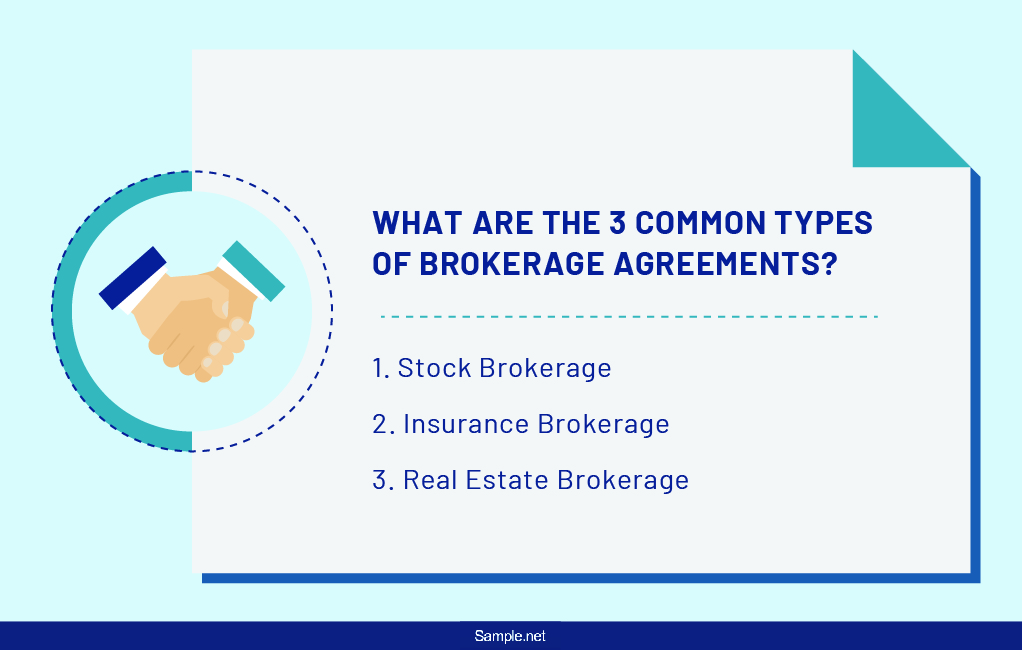
How do You Frame a Good Quality Brokerage Agreement?
Though there are 3 common yet different types of brokerage agreements, each type comes with one purpose—to define the relationship between a broker and client undergoing a business deal. If you are a seller, buyer, or broker, you can tailor a good quality brokerage contract by doing the following steps:
First Step: Input a Background Information and a Compliance Statement
An agreement should have the necessary information identifying both the parties involved: their names, addresses, and what type of sample business industry they’re in. In addition to that, a statement that obligates a broker or seller to follow his/her duties as written in the contract should be included.
Second Step: Include the Details of the Service Provided
The outline of every agreement depends on what type of service is offered under a specific industry. In this part of the agreement, the broker is expected to do his/her part in searching for what the client needs, whether it be an insurance policy, a stock, or a property. The company who provides the goods or services should also be identified in the agreement. Additionally, an exemption to the condition of receiving a broker fee should be incorporated.
Third Step: Don’t forget the Payment Process
As a mediator between the buyer and the seller, the broker should be a part of the business proceedings. Note that it is still the buyer’s power to say the final decision regarding the deal. Conditions for receiving the payment are also detailed here. Moreover, a calculation of the net value percentage of the product bought by the buyer is set. Once the fee is identified, an sample invoice from the broker is required before payment is going to be released. In situations where the buyer doesn’t pay within the set deadline, a provision for late payment will be part of the agreement to grant the broker an additional fee.
Fourth Step: State the Non-Circumvention and Confidentiality Clause
To protect one party from being cheated in business, a non-circumvention clause is essential. This clause prevents one party from being overlooked and not getting the due compensation for his/her work. With the power of this clause, both parties agree to hold back from circumventing the party being protected in the agreement. Breach of this clause will compel the violator to pay for the exact amount the victim would receive otherwise.
Moreover, information that is considered confidential shall include prospects, contacts, technologies, operations, product details, sample documents, and etc. Both parties should guard what is regarded as confidential information in the contract and not disclose any of it to a third party institution. The protected information shouldn’t be used for other business affairs.
Fifth Step: Place the Condition for Termination
It is a fact that a contract legally binds both parties involved in the agreement. Non-fulfillment of the duty a party is obliged to do is considered as a breach of contract. Note that contract termination is governed by the laws enforced in the agreement. Prior notice should be given before the contract is terminated with a specific date written to effectuate termination.
Last Step: Enforce the Agreement with a Governing Law
For the contract to be legitimate, it must be governed by state laws. This is necessary because disputes may come up between both parties. Moreover, both parties are not confined to the laws of the area where they signed the agreement or even the laws of the place they live in. They can actually choose to use state laws that best interpret the contract.
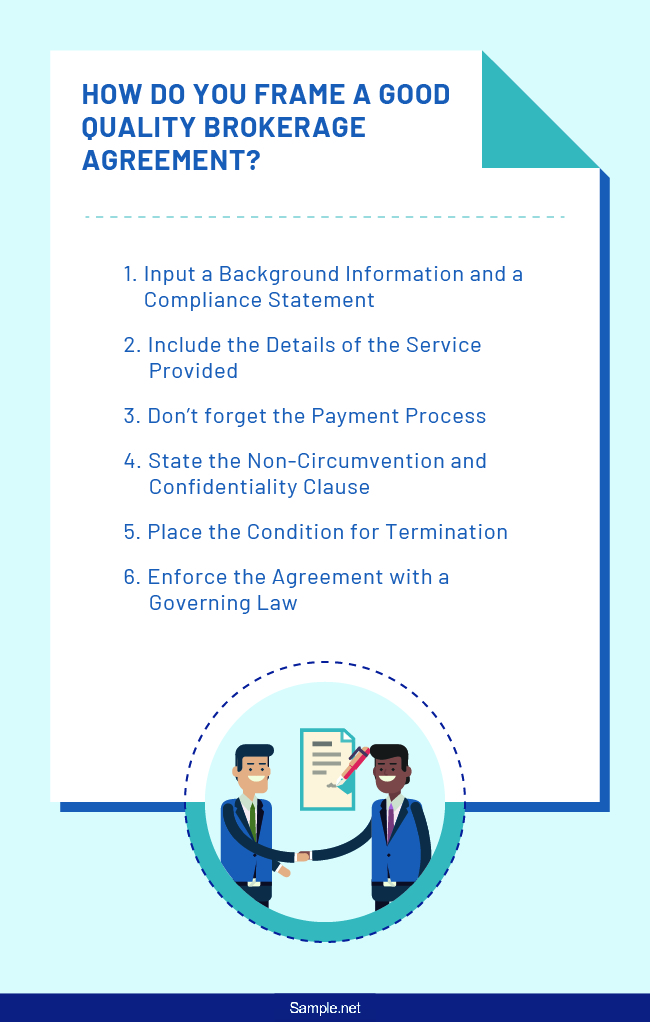
If you are too busy to invest your money in stocks, search for a good insurance company, or look for a property, then seek help from a trustworthy broker. If it is your first time to have dealings with one, using a broker agreement will protect you. Even the broker is someone you already know, it is still necessary to use one to make sure that full assistance will be given. Moreover, if you are a broker, a broker agreement or contract will secure the commission you deserve to receive. Therefore, don’t waste your time and energy by disregarding the use of this agreement.
